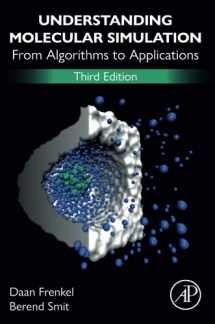
Understanding Molecular Simulation: From Algorithms to Applications
Book details
Summary
Description
Review
From the previous edition:
"... this book brilliantly lays down the scientific foundations of the simulational approach ..." --Prof. Kurt Binder in Physics World, 1997
"... a treasure. The book is a marvellous mix of just enough formalism with an informal and readable style, sufficient detail to understand methodological advances, appropriate mathematics ..." --Prof. Mark A. Ratner in Physics Today, 1997
Understanding Molecular Simulation: From Algorithms to Applications explains the physics behind the "recipes" of molecular simulation for materials science. Since the first edition only five years ago, the simulation world has changed significantly, and current techniques have matured, with new ones appearing. Sections focus on transition path sampling and diffusive barrier crossing to simulate rare events, dissipative particle dynamic as a course-grained simulation technique, novel schemes to compute the long-ranged forces, Hamiltonian and non-Hamiltonian dynamics in the context constant-temperature and constant-pressure molecular dynamics simulations, Multiple-time step algorithms as an alternative for constraints, and more.
Additional sections cover Defects in solids, The pruned-enriched Rosenbluth sampling, recoil-growth, and concerted rotations for complex molecules, Parallel tempering for glassy Hamiltonians, Examples are included that highlight current applications and the codes of case studies are available on the World Wide Web.


We would LOVE it if you could help us and other readers by reviewing the book
Book review



